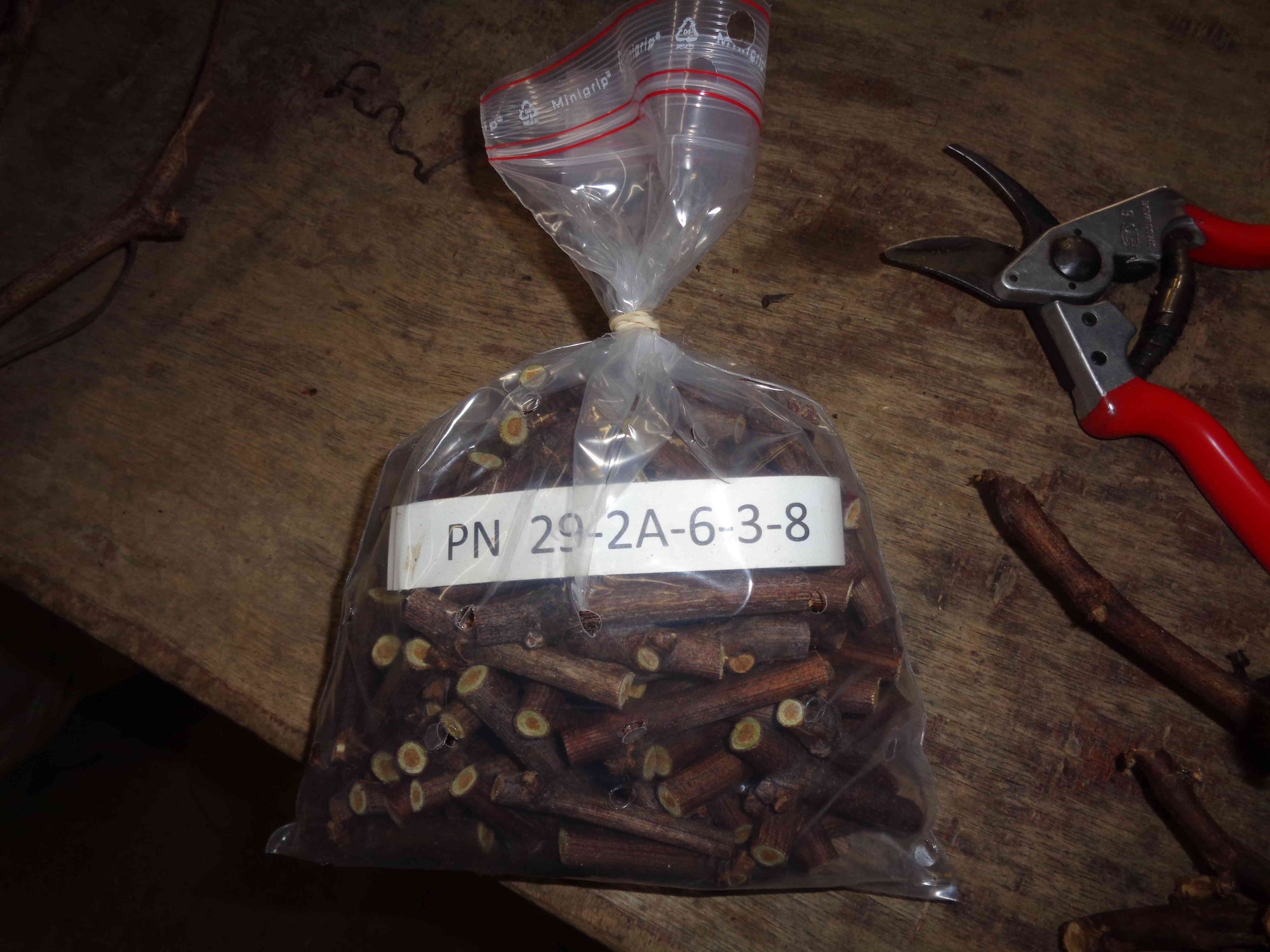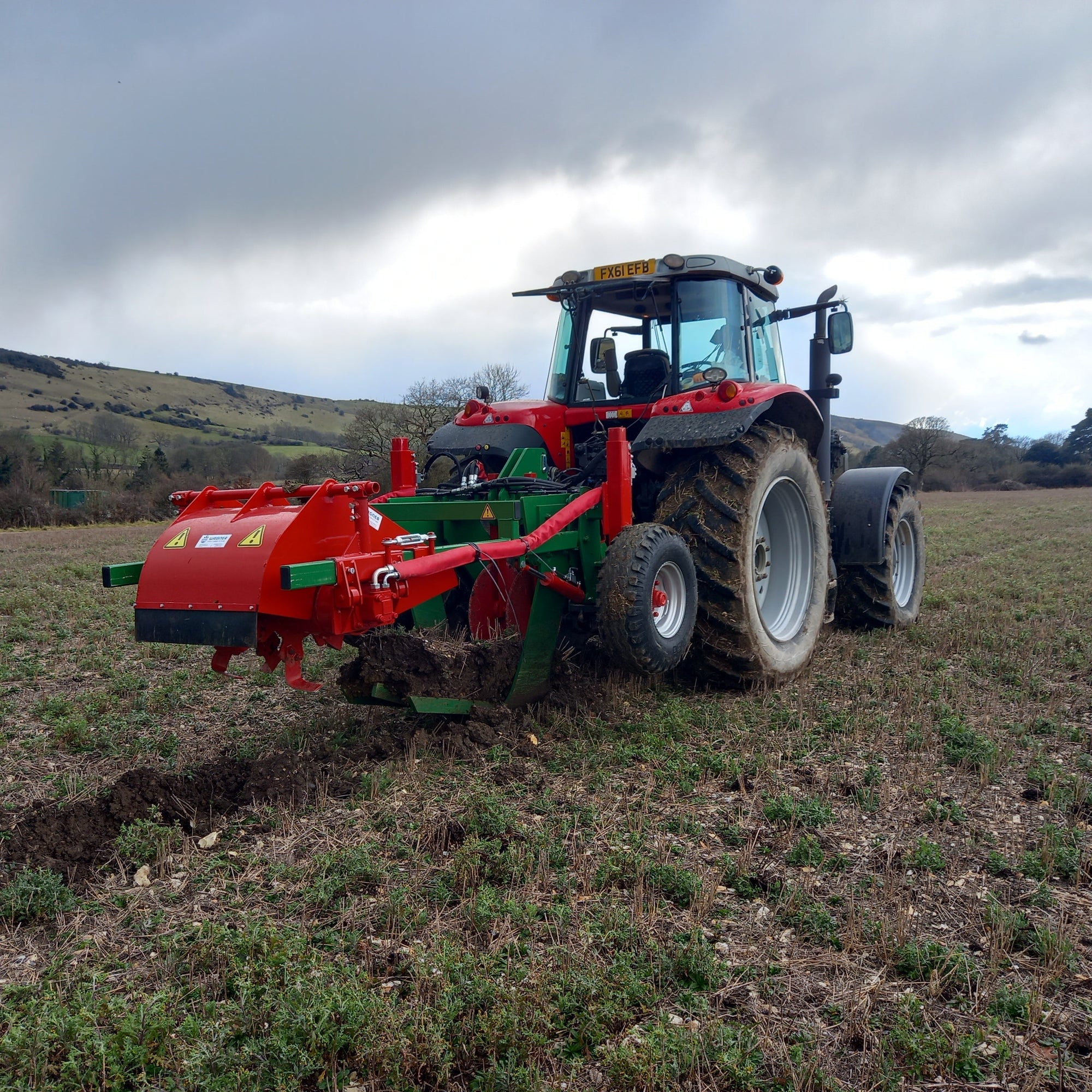

INSIGHT INTO VINE IMPORTING
VineWorks, like all other UK vine importers, buy our vines from Europe. In our case they’re from nurseries in France and Germany. Other winemaking regions have established their own nurseries within their countries, but disease pressure makes a UK nursery nigh impossible, not to mention the lack of consistent high temperatures throughout the growing season.
The process of importing vines has become an ever-lengthening spiral of complexity since Brexit. Each year, the import restrictions increase and criteria for phytosanitary certificates evolve. However, our nurseries’ processes for managing healthy vines have not changed at all. In fact, the reason we have been using these nurseries for more than a decade is precisely because of their attention to plant health, graft quality and understanding of our market. The nurseries have mostly delivered good quality, healthy plants. If there are any issues, they quickly acknowledge and resolve them. That’s what you get when you work with generational family businesses.
I was lucky enough to spend Christmas in Burgundy and relished the opportunity to subject my family to a nursery inspection! Pépinières Guillaume kindly hosted a comprehensive tour of their facilities: hot water treatment processes, quality checks, (usually around 50% of vines are discarded as they don’t reach the required standard) and finally cold storage and packing.
Hot water treatment is the process where vines are dipped in a tank of water and subjected to near 50°C for a period of time to kill any nasties on the vine. At this nursery having clean, quality vines is crucial. Owner, Francois Guillaume said: “There is a control from FranceAgrimer, (the French authorities in charge of the nursery control) in the mother block of rootstock and scion that we use to make plants. In Pépinières Guillaume, we are adding to their control, an auto-control that ensures we use clean material. This auto-control is based on observation and control of possible symptoms of diseases and we make random samples to send for virus and bacteria analysis.”
Francois does offer up a warning, however. “It is very important to notice the difference between serious diseases like Fanleaf, Leafroll, Flavescence Dorée and less preventable diseases that a healthy plant can manage by itself if it is well planted. Agrobacterium is one of these, for example. You will find it everywhere, but if the plants are correctly managed, agrobacterium will never be a problem.”
VineWorks also imports vines from Pépinières Tourette, another French nursery that follows hot water treatment protocols and has supplied many of the vines that are planted in the UK today. They have contributed to earlier articles about vine importation. Pépinières Tourette also sells vines to Canada – the process for importing vines is very different and are at around twice the price of the vines we buy. Vines bound for Canada must have all the soil washed off the roots before they leave France. This is a colossal task that uses a lot of water and costs a considerable amount more. A process that would further increase the already high costs of vineyard establishment in the UK.
All our PiWi vines are sourced from Rebschule Freytag in Germany. They have been instrumental in the breeding and perfecting of PiWi varieties and supply vines all over the world.
Volker Freytag is the current custodian of the nursery which has been running for over 70 years. Volker believes that hot water treatment will not be necessary for vines leaving Germany for the UK: “All our propagation areas are visually inspected annually to exclude diseases. All these measures are controlled and recognised by a state authority in Germany. In addition, wood samples are taken at regular intervals and serological tests are carried out in the laboratory with regard to viral diseases. Thus, every mother plant is serologically tested in the laboratory and by visual inspection. All propagation plots used are tested by a state laboratory for virus- transmitting nematodes; only disease-free plots are used for the production of mother blocks.” He adds that “a wide network of monitoring stations, organised by state entomologists, ensures the control of diseases and vectors. Fortunately, Germany is considered free of “Flavescence Dorée” and “Xylella fastidiosa”, and their vectors, so no hot water treatments are necessary!”
Ultimately the decision whether to hot water treat vines from Germany will be in the hands of the Animal and Plant Health Authority (APHA). APHA decides how vines are imported into the UK and the WineGB Vine Importers group is working closely with them to keep on top of any changes in the future.



